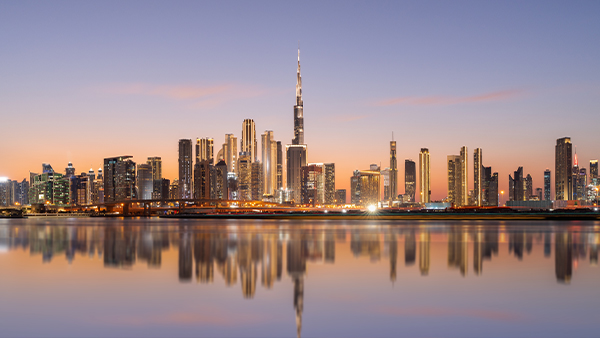UAE Mortgage Rules 2025: How to secure property in Dubai
The UAE, especially Dubai, with its shimmering coastline and visionary urban planning, continues to be the center point of this real estate renaissance.
As 2025 unfolds, a new chapter opens for anyone dreaming of anchoring life in a city where ambition rises as tall as its towers.
The latest UAE mortgage rules for 2025 have reshaped the path toward owning property in Dubai, setting clearer frameworks, improved protections, and smarter eligibility criteria.
For residents and investors, these regulations redefine what it means to buy property in Dubai, making the journey more strategic yet more rewarding.
The Landscape of Dubai’s Real Estate in 2025
Dubai’s real estate has never been static. It adapts, evolves, stretches, and rebuilds just like the city’s relentless horizon.
The 2025 market features a unique blend of elevated demand and a refined regulatory framework, driving a growing influx of global talent to choose the UAE as a long-term base.
Business owners are scaling operations. Global investors are transitioning into long-term residents. And families increasingly seek communities that balance luxury with accessibility.
These shifts have pushed developers, banks, and regulators to create unified frameworks that support responsible buying patterns and sustainable growth.
The structure has tightened not to limit growth, but to guide it.
The Evolved Mortgage Rules in Dubai
Banks in Dubai no longer finance any of the purchase-related fees within the home loan itself.
All transactional costs must now be settled separately and upfront. These include:
● 4% Dubai Land Department (DLD) Registration Fee
● 2% Real Estate Agency Commission
● DLD Trustee Fee: AED 4,200
● Mortgage Registration Charge: 0.25% of the Loan Value
● Title Deed Fee: AED 500
Before February 2025, a significant portion of these fees could be bundled into the mortgage, allowing payments to be spread across the loan tenure.
Under the new guidelines, each fee must be paid in full at the time of purchase, alongside the required 20-30% property down payment.
The result is a shift toward greater financial preparation. It requires buyers to be more responsible, confident, and stable when buying a property in Dubai.
With the new system, developers with flexible, customer-centric payment plans have naturally become more attractive.
And Danube is one such developer, widely recognized for introducing practical installment models like the 0.5% and 1% monthly plan.
With mortgage fees now fully upfront, these low-commitment payment paths offer buyers accessibility without compromising on luxury, lifestyle, or quality construction.
Understanding the Core Financing Framework
Mortgage lending in the UAE follows a structured blueprint that dictates how much support banks can offer.
The cornerstone of this framework is the Loan-to-Value (LTV) ratio, which determines the percentage of the property value the bank offers to finance.
LTV Limits for UAE Nationals
- Up to 80% for a first home priced at AED 5 million or below
- Up to 70% for homes above that threshold
- Around 65% for subsequent properties
LTV Limits for Expatriates
- Around 75% for a first home under AED 5 million
- Up to 65% for homes exceeding AED 5 million
- About 60% for second or investment-focused assets
Off-Plan Purchases
A 50% LTV cap applies across all buyer categories.
Another defining element is the Debt Burden Ratio (DBR).
Local guidelines generally cap total monthly loan commitments at half of total income, while the maximum mortgage size is within seven to eight times annual earnings, depending on residency status.
The intention is clear: sustainability over acceleration. These rules create boundaries that prevent excessive financial strain and keep the property market grounded.
Why does the 2025 Mortgage Reform Matter
The latest reforms mark a deliberate shift in how Dubai safeguards its property market.
Requiring upfront payment of all associated fees ensures that buyers enter the market with real liquidity, reducing exposure to default risks, in turn strengthening financial readiness.
By restricting excessive mortgage reliance, Dubai avoids the overheated price cycles seen in less-regulated global hubs.
Markets such as London and major US cities already follow similar structures, where mortgages cover the property alone. The UAE’s new rules bring property in Dubai closer to those global benchmarks.
The goal isn’t restriction. It’s maturity.
What This Means for the Future of Dubai’s Property Market
The UAE’s 2025 mortgage reforms are a blueprint for an evolution that signals to the world that Dubai is not just a glamorous city, but a structured, future-ready real estate powerhouse.
Developers like Danube are rising to meet this new era with modern designs and accessible living that feels both aspirational and attainable through their innovative payment plans.
The result is a real estate ecosystem where families, professionals, and global investors can secure homes with clarity, confidence, and long-term vision.
Final Word: A Future Rooted in Stability and Opportunity
The 2025 UAE mortgage rules mark a turning point in Dubai’s real estate market.
They ensure sustainability, while offering enough flexibility to welcome new buyers into one of the world’s most dynamic real estate markets.
As the city continues to push boundaries, Danube Properties plays a vital role in shaping communities that are dependable, beautifully designed, and thoughtfully priced.
With our customer-centric approach to luxurious living, the future of property in Dubai becomes more attainable, more strategic, and more exciting.
The next chapter of homeownership in the UAE is built on rules designed for stability, developers committed to value, and a city that has never stopped dreaming upward.
And just like that, Dubai continues to inspire, innovate, and grow.

